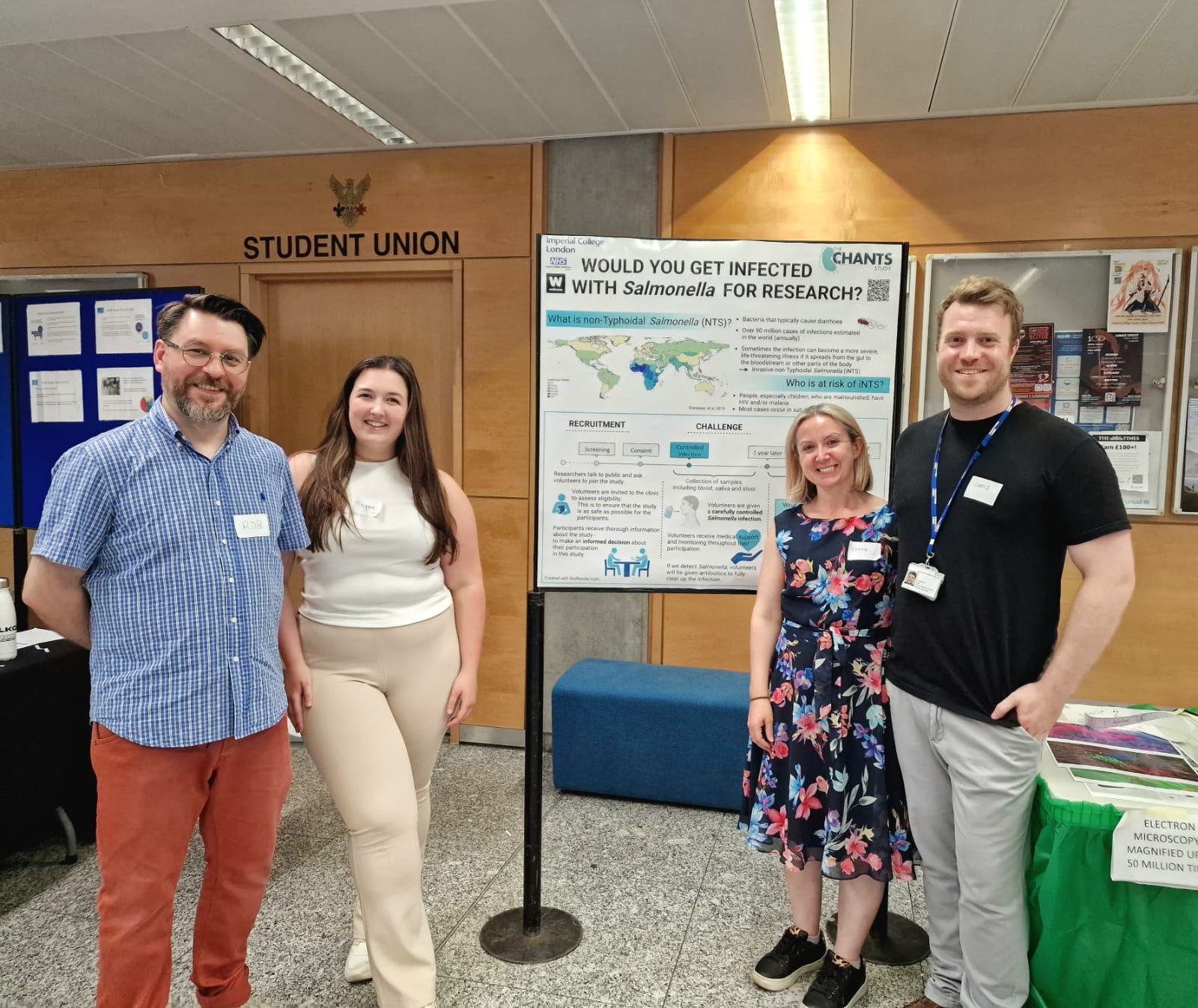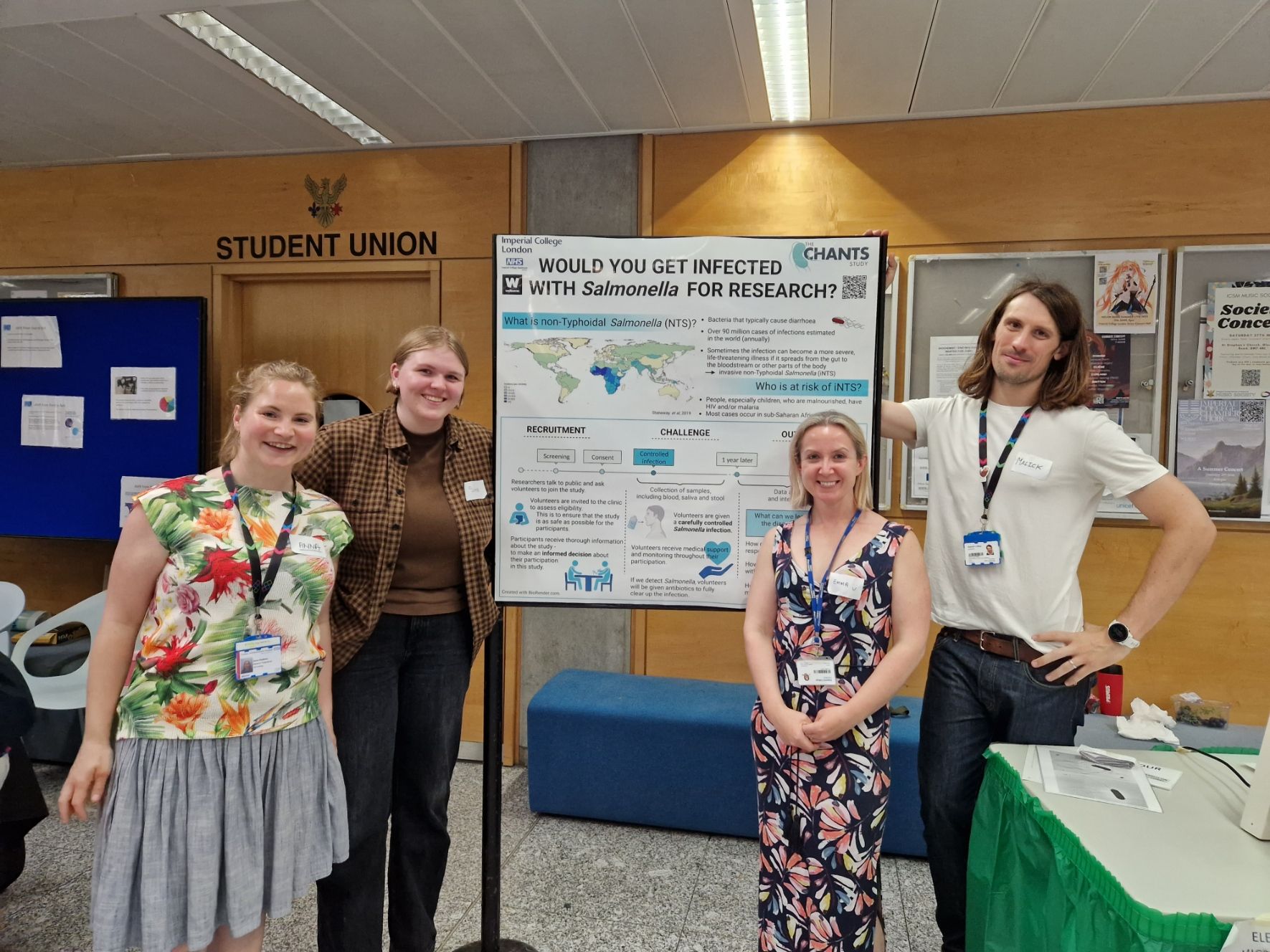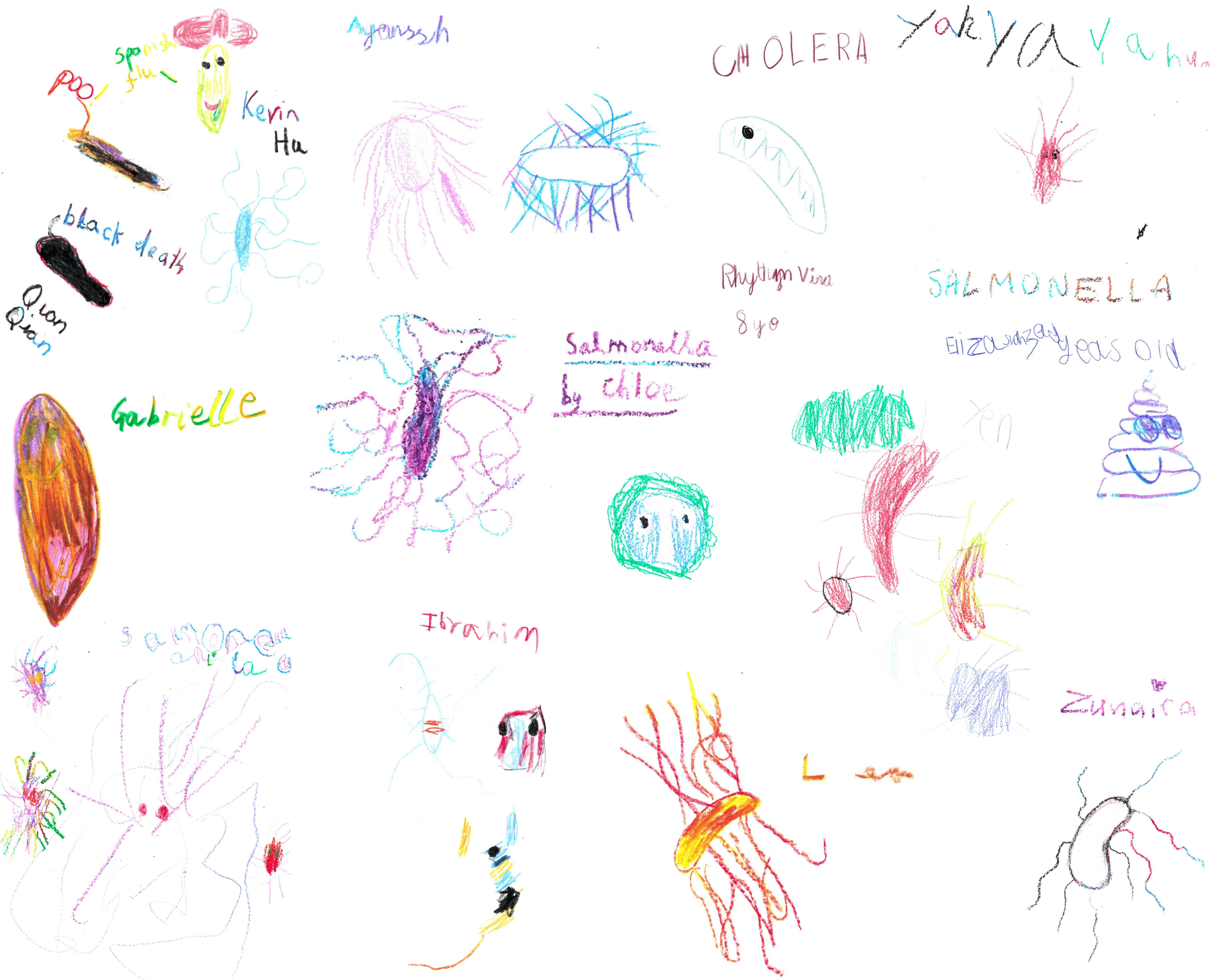Would you be infected with Salmonella for research?
From bacteria to the Bristol stool chart, the excitement was buzzing around our stand at the Great Exhibition Road Festival on the 17th- 18th June, 2023. The underlying theme to the stand was the work we do as a Human “Challenge” Study research group. An infection challenge study is a type of clinical trial in which volunteers are deliberately exposed to an infection, with the aims of studying the biology of infections, the immune responses to it, and – eventually – to help test new vaccines, diagnostic tests and treatments. Human challenge studies have been used for many decades, but are often not very well-known. We wanted to discuss their uses, benefits and risks with the public, as well as how they are made as safe as possible.
The study we were talking about was the CHANTS study. In this study, led by Dr Malick Gibani at Imperial College London, we are deliberately challenging healthy adult volunteers with a type of Salmonella called NTS. This challenge involves giving participants a drink containing a known dose of the bacteria. This mimics the natural way people catch the infection (through ingesting contaminated food or water). The goal is to develop a clinical model to be able to test new Salmonella vaccines in volunteers.
There were several interactive activities we had set up to help engage people with the science behind the clinical study. There were ways for everyone to visualise what Salmonella looks like, and how we identify bacteria in the lab. The first was to show some electron microscopy pictures of Salmonella with a scale of only 1μm, which is 10,000 times smaller than 1cm! Next, we had a microscope so people could look at some stained, killed Salmonella bacteria magnified 400 times and feel like a scientist themselves. Using this and the pictures, we asked children to play a game and guess which one of our toy microbes was a Salmonella, and they were great at guessing correctly. We also had some demonstration agar jelly plates growing some live E.coli bacteria, so that we could show how bacteria (including Salmonella) like to grow in colonies. Even though each colony contains millions of bacteria, they are tiny compared to humans.
Finally, we had a very popular game: rate the poo! As Salmonella infection often causes diarrhoea, we invited children to play a game based on the ‘Bristol Stool Scale’. This scale describes variations of stool and rates them from 1-7 depending on their consistency, with 1 representing poo from someone with constipation through to 7 representing watery diarrhoea. The Bristol Stool Scale is a way doctors monitor and record how healthy your gut is. The children were impressively quick at matching up drawings to descriptions, and once they had finished they got a sticker. We used the opportunity to ask what they thought healthy poo should look like too.
Overall, we had a fantastic time talking with members of the public about the type of work we do, whilst teaching both adults and children a little bit about Salmonella and looking after your gut health. It also gave people a chance to express their views on the study via an anonymous comments box: the most common concerns we received were about whether the volunteers would get really sick from the infection, and the possible long-term effects of being infected with Salmonella. As with any human challenge study, we are very careful in our selection of healthy volunteers to minimise the risk of serious or long-term symptoms. We also received some great positive feedback from individuals who recognised the potential for vaccine development, such as:
“Excellent idea to conduct studies. I will advocate this with colleagues.”
“Absolutely fascinating study exploring a little understood term ‘Salmonella’ and finding a possible vaccine to a particularly dangerous strain. Brilliantly explained.”
Contact us
To get in touch with a member of the study team, please email chants@imperial.ac.uk or call us +44(0)78 9498 6332




